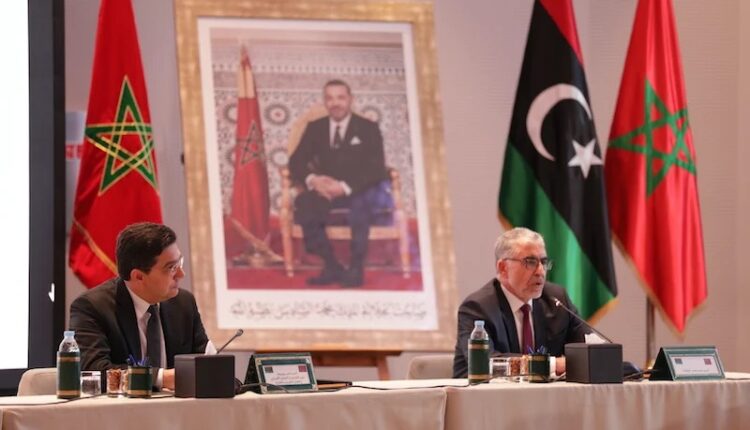After two weeks of discussions in Morocco, the “6+6” joint commission, which was tasked by the Libyan House of Representatives and Council of State with drafting the electoral laws, declared on Tuesday night in Bouznika that its members had reached an agreement on the legislation governing the presidential and parliamentary elections scheduled for the end of the year.
Jalal Shwehdi, a member of the House of Representatives, stated at the closing session of the 6+6 commission that the final agreement on these laws would be discussed in the upcoming days in front of the presidents of the Libyan House of Representatives and Council of State. Also present were Omar Abu Lifa, a member of the High Council of State, and Nasser Bourita, the Minister of Foreign Affairs, African Cooperation, and Moroccan Expatriates.
Shwehdi lauded the role the Kingdom of Morocco played in the success of this conversation and in obtaining agreements on the aforementioned electoral legislation, emphasizing that the commission had not come under any external pressure.
Specifically mentioning that two laws had been drafted, the first of which dealt with the election of parliament (House of Representatives and Senate) and the second text dealt with the election of the Head of State, Abu Lifa stated that the members of the commission had reached a compromise on all points of divergence relating to the electoral laws.
He emphasized that the only thing left to do is for the House of Representatives to officially publish the laws as required by Amendment 13 of the Constitutional Declaration in order to start the election process.
The outstanding points were the subject of a compromise without any foreign interference, he said, explaining that these laws do not prohibit any person from participating in the electoral process and do not provide for any exclusion, just as they offer the opportunity for political parties to play a fundamental role in the electoral process.
Both rules encourage women to actively participate in the House of Representatives and the Senate and increase the country’s regional representation since all outlying towns and villages have a representative in the legislature.
Furthermore, Abu Lifa thanked Morocco for its ardent support of the commission’s work, stating that the country’s “successful efforts” had made it much easier to complete this task.
In order to ensure the unity, stability, and advancement of Libya, the Kingdom of Morocco is continuing its efforts to find a permanent solution to the country’s problem by supporting its attempts to hold elections within a comprehensive, inclusive, and practical framework.
The Bouznika meeting is an extension of the series of gatherings the Kingdom has hosted, bringing together the various Libyan parties in order to deepen discussion on strategies for ending the nation’s crisis while adopting a strategy that creates the ideal environment for dialogue and useful consultation.
These meetings had led to important agreements favorable to the settlement process, led by the Skhirat Agreement (2015), the agreement between the speaker of the House of Representatives, Akila Saleh, and the president of the Libyan High State Council, Khalid El Machri in October 2022 on the implementation of the results of the Bouznika process concerning sovereign positions and the unification of executive power.
Morocco believes that the only way to settle the legitimacy issue in Libya is through presidential and parliamentary elections, which will give the Libyan people the chance to decide who they want to have the authority to lead the nation politically.
Read Also: Moroccan Minister of Foreign Affairs meets with Israeli National Security Adviser


